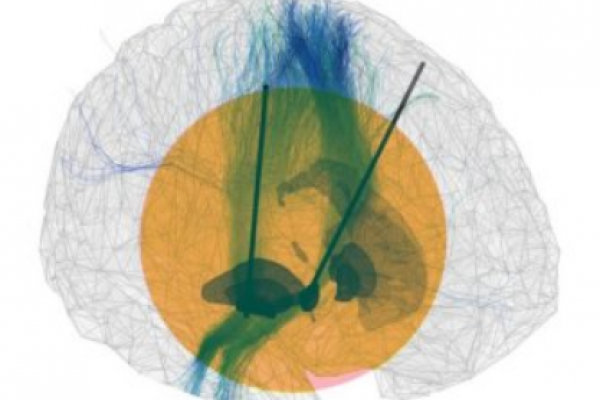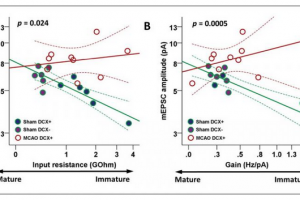Effects of deep brain stimulation in patients with Parkinson's disease
Researchers from Charité -- Universitätsmedizin Berlin have studied motor and cognitive effects of deep brain stimulation in patients with Parkinson's disease.
Researchers from Charité -- Universitätsmedizin Berlin have studied motor and cognitive effects of deep brain stimulation in patients with Parkinson's disease. Their results show that the adverse cognitive effects of deep brain stimulation are linked to a different neural pathway than that responsible for the treatment's desired motor effects. This finding will help optimize treatments for patients with Parkinson's disease. Results from this research have been published in Brain.
Deep brain stimulation (DBS) is an effective treatment alternative for Parkinson's disease patients with an inadequate response to drug treatments. DBS targets the subthalamic nucleus, which forms part of the diencephalon, a division of the forebrain. The subthalamic nucleus integrates information from different neurons and is primarily responsible for motor processes, but also plays an important role in cognitive processes, such as decision-making and response modulation.
You can refer to the this link.





Related Posts